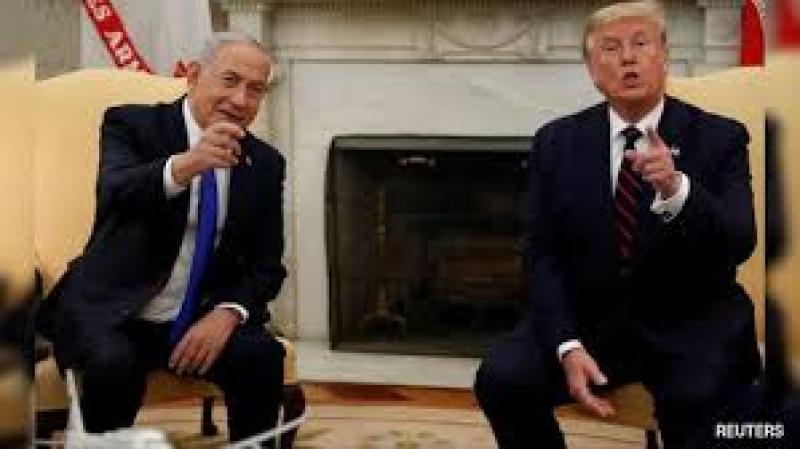- Trump considering military options on Greenland; Europe rejects |
- Fertiliser crunch threatens Kushtia’s onion boom despite high prices |
- Security Council Divided on United States' Venezuela Action |
- Over 1.53m voters register for postal balloting: Shafiqul Alam |
Trump Invites Netanyahu to White House for Feb Meeting

President Donald Trump has extended an invitation to Israeli Prime Minister Benjamin Netanyahu for a meeting at the White House next week, making Netanyahu the first foreign leader to visit during Trump’s second term. The meeting, scheduled for February 4, comes amid ongoing international pressure on both Israel and Hamas to maintain a fragile ceasefire that has temporarily halted the devastating 15-month war in Gaza.
The White House confirmed the invitation in a letter shared by Netanyahu’s office on Tuesday, which emphasized the intent to discuss ways to secure lasting peace in Israel and the broader region, as well as strategies to confront common adversaries.
For Netanyahu, the visit offers an opportunity to underscore the strong support he has received from Trump throughout his tenure, particularly during the Israel-Hamas conflict. The two leaders had last met in person at Trump’s Mar-a-Lago estate in Florida in 2024, marking their first face-to-face meeting in nearly four years.
As the largest recipient of U.S. military aid, Israel's ongoing military needs are expected to be a key topic, with Netanyahu likely seeking assurances from Trump that weapons deliveries will continue without delays—an issue that has been a point of contention with the Biden administration. Additionally, Netanyahu is expected to press for greater pressure on Iran and to revive efforts to facilitate normalization between Israel and Saudi Arabia, a key regional power.
Despite his warm ties with Trump, Netanyahu remains committed to pushing forward with his military objectives. He has warned that Israel will resume its offensive if Hamas fails to meet demands in negotiations over the ceasefire’s second phase, which is aimed at achieving a comprehensive peace deal and an Israeli withdrawal from Gaza.
Meanwhile, the humanitarian situation in Gaza remains dire. Over 375,000 Palestinians have returned to northern Gaza since Israel allowed their re-entry on January 29, marking a significant development in the fragile ceasefire. Many Palestinians are returning to the wreckage of their homes, while others struggle to rebuild makeshift shelters amidst the widespread devastation.
The ceasefire’s first phase has also allowed for the release of hostages and Palestinian prisoners, with the next round of exchanges set to occur later this week. However, the toll of the war is still felt deeply on both sides, as the conflict has already claimed tens of thousands of lives, with no clear resolution in sight.
As the ceasefire continues, international mediators, including Qatar, have reported that no major violations have been detected, but both sides remain on edge. The fragile peace holds the potential for a new diplomatic chapter, but much remains uncertain as the world watches for the next steps in this ongoing and tragic conflict.

